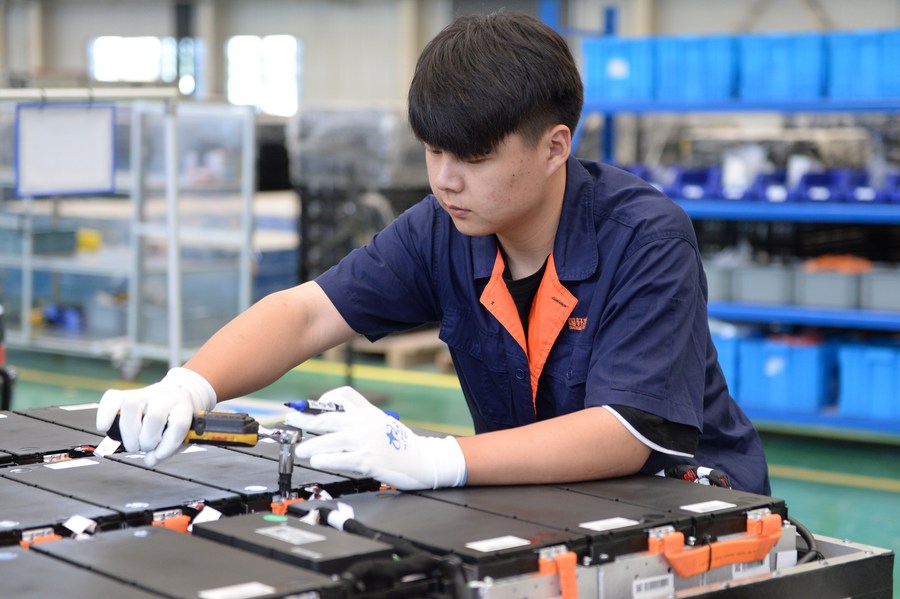Foreign companies remain confident in China's NEV market

A worker is busy at a battery company plant of Gotion High-tech Co., Ltd. in Hefei, east China's Anhui Province, June 19, 2020. (Xinhua/Huang Bohan)
HEFEI, May 25 (Xinhua) -- German automaker Volkswagen's Chinese joint venture Volkswagen Anhui recently began working on a new project for making new energy vehicle (NEV) parts, with an investment of 130 million yuan (about 19.5 million U.S. dollars).
Located in Hefei, capital of east China's Anhui Province, the project has a planned construction area of around 31,000 square meters. Upon completion, it will provide auto parts including seats and accessories for NEVs produced by Volkswagen Anhui.
Despite many parts of China still battling COVID-19 resurgence, foreign firms' confidence in investing in the Chinese NEV market remains undiminished, thanks in part to the country's thriving economic prospects.
On May 10, Volkswagen Group China announced to establish a new digital sales and services company in Hefei. The new company is expected to complete Volkswagen Anhui's entire value chain in terms of manufacturing, R&D, testing, marketing, and customer services.
This new digital sales and services company is an exciting chapter in the group's investment in e-mobility and another milestone in its partnership with Anhui Province, said Stephan Wollenstein, CEO of Volkswagen Group China.
Japanese carmaker Honda, which officially launched its first pure-electric vehicle in China in April, aims to increase its NEV sales in China to 800,000 units by 2030.
In January, Dongfeng Honda Automobile Co., Ltd. announced to set up an NEV factory project in Wuhan, Hubei Province, with a total investment of about 10 billion yuan. It is expected to start operation in 2024.
Guidelines released last month said China supports the development of NEVs, and encourages the development of NEVs in rural areas and the construction of NEV supporting facilities there.
Industrial insiders believe that the favorable policies will further boost the consumption of NEVs in China.
"Foreign enterprises are generally optimistic about the long-term and stable development of China's economy and market potential," said Zhang Bingli, professor at Hefei University of Technology.
Chinese government's heightened focus on the NEV industry and its strong support in terms of policies and funds to the industry are attracting foreign investment into China's NEV business, Zhang added.


